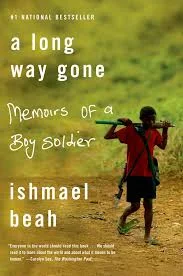You're not my friend
February 2019, Good Weekend
Sometimes I wonder how many people will come to my funeral. Not many, I reason. Or rather, fewer than there might be.
I have a clutch of close, lovely, funny, intelligent friends but there’s another batch and it’s much larger. They are the ex-friends, and I don’t mean the ones where you lose touch because of changing jobs, homes, countries or circumstances.
I mean the ones where I channelled American author Kay Thompson’s six-year-old Eloise, in determined arm-folded pose, and told them: you’re not my friend anymore.
Then they vanish into the slipstream behind me. I rarely look back.
You’d have to wonder why I do it; even I can be appalled.
What’s wrong, I sometimes lecture myself, with just sliding into the distance? Isn’t that what we can do now courtesy of our tech devices’ many escape routes? Surely that’s less dramatic, if not less hurtful.
Less final though. And that’s the clue; I want it to be final.
An appearance by Eloise means there will be no more phonecalls nor invitations to a drink or dinner three months on, which would mean having to go through the same excruciating, self-examining, what-kind-of-terrible-person-am-I? process again.
At least I’m relieved that whenever I bring up this icky subject – ending once close friendships – I discover how many others are doing it too. Nice people. Kind ones. People with personalities far sweeter than mine. Hah, said one of the warmest women I know with a brutality I hadn’t expected, “life’s too short.”
Still, dropping a friend means making a judgement call, and that can smack of flinty fault-finding. It’s actually far more nuanced.
When someone becomes a friend, our lives meld a little or a lot. So do our emotions, memories, and favourite punchlines. We become gently entangled like seaweed fronds even if we only see each other occasionally.
You feel responsible for friends. You do things for them you don’t do for strangers or acquaintances. You worry about them, barrack for them. You’re loyal. You pick up the bill unexpectedly; they do too.
You also know when to give each other leeway - and how much.
But mainly, a friend is someone who inspires good thoughts, so the most telling sign a friendship is heading towards the discard tray is when those thoughts start turning into irritation and/or puzzlement. Or worse, disappointment.
I was close friends for decades with a woman who, in my mind, always had a muzzy golden aura around her like the saints on the old Holy cards. She came across as an amalgam of Mother Teresa, Joan of Arc and legendary social hostess Elsa Maxwell.
Then, startlingly, over a few years, she let me down on a series of small but acutely sensitive things in her area; important to me as I tried to explain to her but not to her it became apparent.
We’d never asked much more of each other than a catch-up gossip or consoling chat so the difference between her usual voluble, warm persona and this felt like that moment in a thriller when someone’s true nature is revealed, thrum-thrum-thrum.
Then I saw her do the same thing to an even older friend of hers, one who really needed her practical help (as opposed to effusive sympathy texts). My friend may have had good reason to behave as she did with both of us, but I became uncomfortable.
I bought myself space, dodging calls and texts but then, with no sign of them stopping, it was clearly time for Eloise. I emailed to say I thought our friendship had done its dash.
Later, I told a mutual friend, a man, what I had done. What did he think, I asked with some nervousness. Aren’t long term companions a sign of stability?
His summation of my friend’s character, which he’d considerately kept to himself for years, was sharp, unrepeatable and shockingly funny. I could only laugh.
How had I not seen that side of her? Because we mostly saw each other over happy dinners? Because I kept thinking of her as a cheerful, go-getting, 30-something? Because – this is hard – she’d always flattered me?
Which brings me back to my Eloise compulsion. Far from being a bad person, I think, like Eloise who also had her rules of behaviour and whose appeal drew from that, I try to hang on to a code of friendship.
If I can’t keep that code – or my friends aren’t – I need to not just let go but explain why. Thus the code is noted, honoured, preserved; a rallying, brilliant flag. On the battlefield of life, good friends make our lives so much better.
But friends who let us down badly are asking us to suspend our beliefs about friendship so they can keep enjoying the benefits of being our friends.
I know men rarely think like this. A close male friend said to me, “You can know another man well for 20 years but never discuss the inner emotional life.”
I’m yet to fathom which sex does friendship better.
Meanwhile, what gives life its sparkle, is making more room for the friends I love. The ones I trust.
This is a longer version of a story first published in Good Weekend magazine, February 16, 2019





